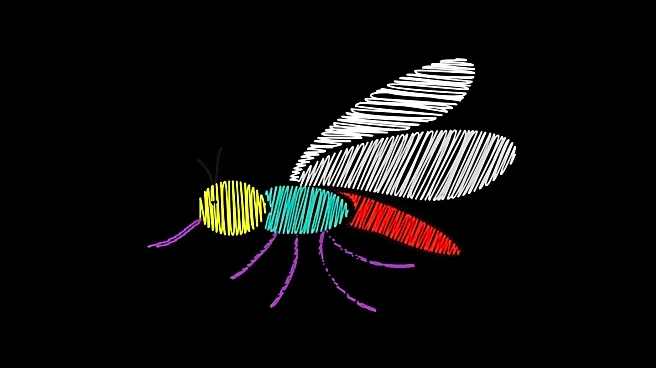What's Happening?
A resident in Hong Kong has contracted chikungunya, a mosquito-borne illness, marking the first case in the area in six years. The infection was traced back to Foshan, China, which recently reported over 6,500 cases. The Hong Kong Food and Environmental Hygiene Department has implemented mosquito control measures, including fogging and removing stagnant water. Chikungunya is primarily spread through mosquito bites, and while it doesn't typically transmit between humans, infected mosquitoes can spread the virus. Rising temperatures and extreme weather changes are contributing to the spread of vector-borne diseases like chikungunya, with cases appearing in new regions.
Why It's Important?
The spread of chikungunya highlights the growing impact of climate change on public health. Warmer temperatures and increased rainfall are facilitating the expansion of disease-carrying mosquitoes into new areas. This poses a significant threat as vector-borne diseases like West Nile, dengue fever, and Lyme disease may also increase. The situation underscores the need for effective mosquito control and climate change mitigation strategies to prevent further spread and protect public health.
What's Next?
Efforts to prevent vector-borne diseases include releasing mosquito-eating fish and promoting the removal of stagnant water. Individuals are encouraged to wear protective clothing and use bug repellent. Supporting actions to reduce pollution and advocating for cleaner energy sources are also recommended. These measures aim to curb the spread of mosquito-borne illnesses and address the broader issue of climate change.










